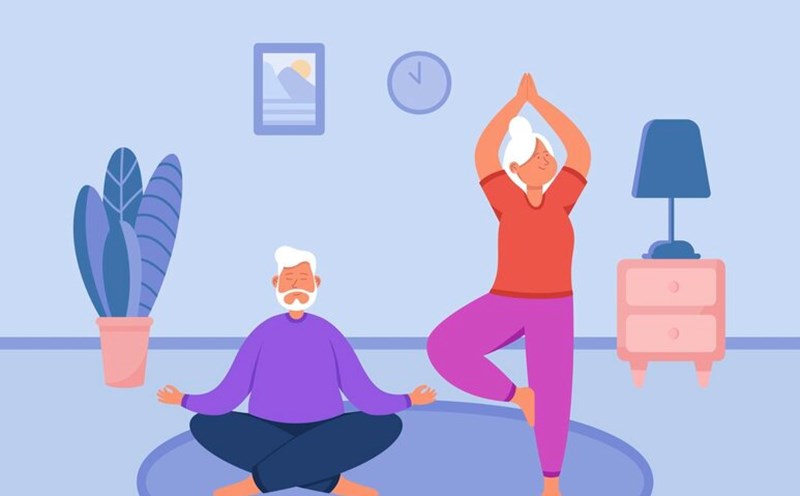Yoga is often known for gentle exercises, but the Navasana pose, also known as the boat pose, brings outstanding benefits to abdominal and mental health.
Although it may seem simple, Navasana requires the simultaneous participation of many muscle groups, balance and high concentration, helping to comprehensively increase the strength of the mid- body.
According to yoga teacher Sharath Jois, Director of Sharath Yoga centre (Mysuru, India), holding the boat pose for 25 breaths, divided into five sets with a short break, can be equivalent to performing 100 traditional crunches in intensity and efficiency.
In addition to shaping abdominal muscles, Navasana also stimulates internal organs in the abdominal area, supports the digestive system, and helps reduce cortisol levels, which is the main cause of stress and improves brain function.
Dr. Lakshay Bhaktiani, Head of the Department of Physical Therapy at PSRI Hospital, said that compared to conventional abdominal exercises such as crunches, Navasana is more effective because it affects the entire core of the body, including deep, stable muscles such as the transverse abdominal muscles, hip flexors, spinal extensors and pelvic floor.
In addition, this pose promotes better postural connection and requires maintaining a neutral spine, helping to reduce pressure on the neck and lower back. Holding a still position also increases endurance and body awareness, instead of focusing only on repetitive movements.
Not only does Navasana increase body strength, it also positively affects the nervous system. When holding the pose combined with slow and controlled breathing, the epiderophile nervous system is stimulated, bringing a deep relaxation state.
Focusing on the core with deep breathing helps reduce cortisol levels, thereby calming the mind and reducing stress, explains Dr. Bhaktiani.
This is also the reason why yoga is considered an effective stress reliever, helping to improve emotional recovery over time.
In terms of cognitive function, maintaining the Navasana pose requires coordination, balance and concentration, affecting the brain regions responsible for controlling movement and regulating emotions.
Regular exercise improves muscle communication, enhances body awareness and concentration, reduces mental fatigue, and supports emotional stability, adds Dr. Bhaktiani.











